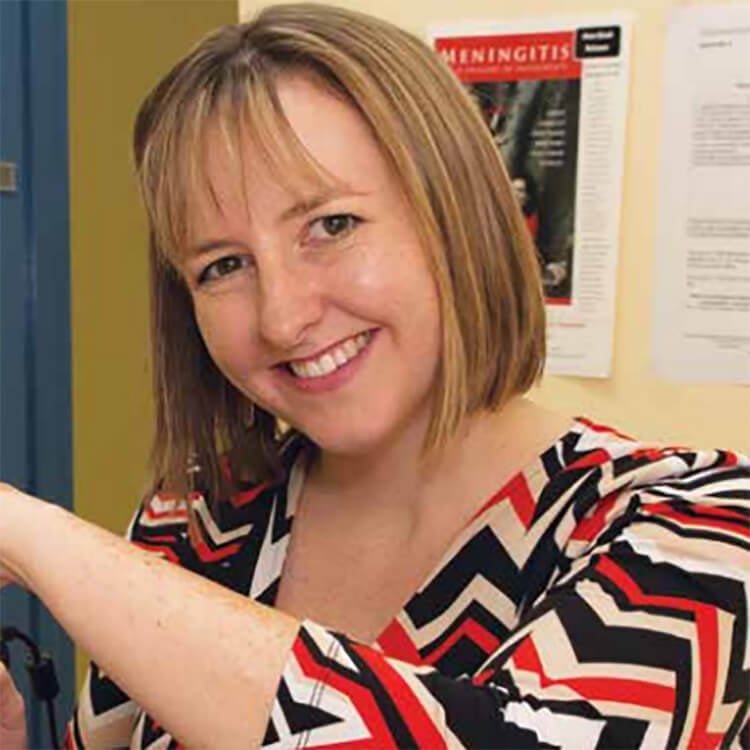Search

News & Events
WANTED: 'Flu BustersHundreds of healthy volunteers are needed in Perth to test the effectiveness of a current 'flu vaccine.
News & Events
Bird flu vaccine produces promising resultsAn Australian-developed vaccine that's been trialed in Perth has been found to produce a strong immune response against the H5N1 bird flu virus.
News & Events
Meningitis study aims for fewer needlesPerth researchers are investigating a new combined vaccine to protect against three causes of potentially deadly bacterial meningitis.

People
Associate Professor Lea-Ann KirkhamCo-Head, Bacterial Respiratory Infectious Disease Group; Microbiology Lead, Wesfarmers Centre of Vaccines & Infectious Diseases



News & Events
Five The Kids researchers awarded prestigious grantsSeveral The Kids Research Institute Australia researchers will share in more than $7.5 million in prestigious Investigator Grants to pursue a range of innovative child health research.
Research
Acceptability of OP/Na swabbing for SARS-CoV-2: a prospective observational cohort surveillance study in Western Australian schoolsWhen the COVID-19 pandemic was declared, Governments responded with lockdown and isolation measures to combat viral spread, including the closure of many schools. More than a year later, widespread screening for SARS-CoV-2 is critical to allow schools and other institutions to remain open.
Research
Prospective surveillance for invasive Staphylococcus aureus and group A Streptococcus infections in a setting with high community burden of scabies and impetigoInvasive Staphylococcus aureus (iSA) and group A Streptococcus (iGAS) impose significant health burdens globally. Both bacteria commonly cause skin and soft tissue infections (SSTIs), which can result in invasive disease. Understanding of the incidence of iSA and iGAS remains limited in settings with a high SSTI burden.
Research
Medical practitioner's knowledge on dengue management and clinical practices in BhutanDengue has emerged as a major public health problem in Bhutan, with increasing incidence and widening geographic spread over recent years. This study aimed to investigate the knowledge and clinical management of dengue among medical practitioners in Bhutan.
